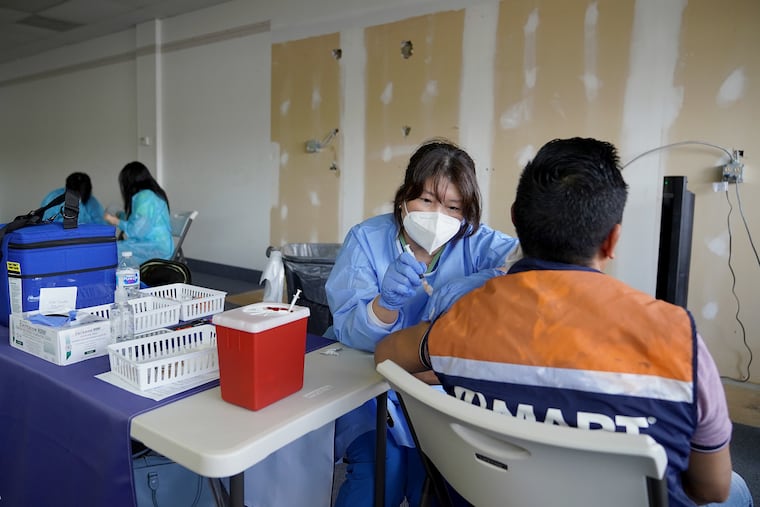Please get vaccinated. We owe it to the exhausted doctors and nurses who deserve a break. | Opinion
Another wave of COVID-19 is predicted for the fall because of poor vaccination rates. Many doctors, nurses and staff will not be emotionally prepared for it. Here's how you can help them.

It’s a warm afternoon in late June and the streets outside Thomas Jefferson Hospital are active with people bustling to a meeting or a restaurant. A few wear masks but most do not, in a much needed display of normalcy. There are people outside eating and drinking and laughing.
By any measure, the past few days at the hospital have been quiet. Only a handful of admissions came in. There is something else very strange: The team I worked with didn’t see a single active COVID-19 patient, nor any the whole preceding week. The infection that marauded over the hospital for 14 months has somehow miraculously gone, vanished.
For months COVID-19 patients came in droves, in crushing waves of fevers and pneumonia and families broken apart. And of course waves of death, most often in the Intensive Care Unit, where organ function would drop off like old branches from a tree until so many would come off the tree would fall itself. Doctors and nurses and respiratory therapists lived their life so close to grief they could almost touch it.
Though the raging fever of COVID-19 has burned out, there is no sense of “mission accomplished,” no revelry in a victory hard fought and even harder earned. Now, walking into a patient’s room for a doctor can be difficult. The sense of dread to dedicate yourself to a mission so overwhelming, so futile at times, has built up to an unsustainable level. It’s often just too much to feel the beating of one’s own heart let alone try to take care of another.
One of the worst moments for me was when I admitted an elderly man and his wife, both with COVID-19 pneumonia. The man appeared notably angry, and later the wife admitted that she had let their grandson come over for a very brief visit. Just home from college, he brought an unwelcome visitor with him. The grandfather ended up in the ICU and on a ventilator. Only his wife would make it home.
We’re told now, that it’s time to move on, and get back to the normal we all remember. Go back to your patients in the office, go back to your work and research and weekends with your family. Enjoy some time at the beach with your children. Go exercise and do yoga. The threat has passed, the world is opening again, there is hope now.
Many in the hospital don’t feel this though. “They tell me it’s over, that everything’s alright,” one doctor told me. “But it’s not over. It’s not alright. I’m not alright.”
At Thomas Jefferson University we are fortunate to have resources and a supportive environment of colleagues and administration. Other hospitals in other cities got hit much harder. The mental health of their doctors and staff can only be in worse shape. Their sense of moral injury, of betrayal at a system that left them, their families, and their patients vulnerable, must be extreme.
Another wave of COVID-19 is predicted for the fall because of poor vaccination rates. Many doctors, nurses and staff will not be emotionally prepared for it.
We all have the ability to help the hospital and its staff heal. We need as many people as possible to get vaccinated, so we can once and for all put this scourge behind us. We know the vaccine is safe, it’s extremely effective (even against the new variants), and we have plenty of doses. Let’s take advantage of this opportunity. If not for ourselves, then for the mental and physical health of our doctors, nurses, and hospital staff who risked their lives and the lives of their families for others.
Michael J. Stephen is an associate professor of medicine at Thomas Jefferson University and head of the Adult Cystic Fibrosis center. He is also the author of the recently published book “Breath Taking, The Power, Fragility and Future of Our Extraordinary Lungs.” Read more about him at drmichaelstephen.com.